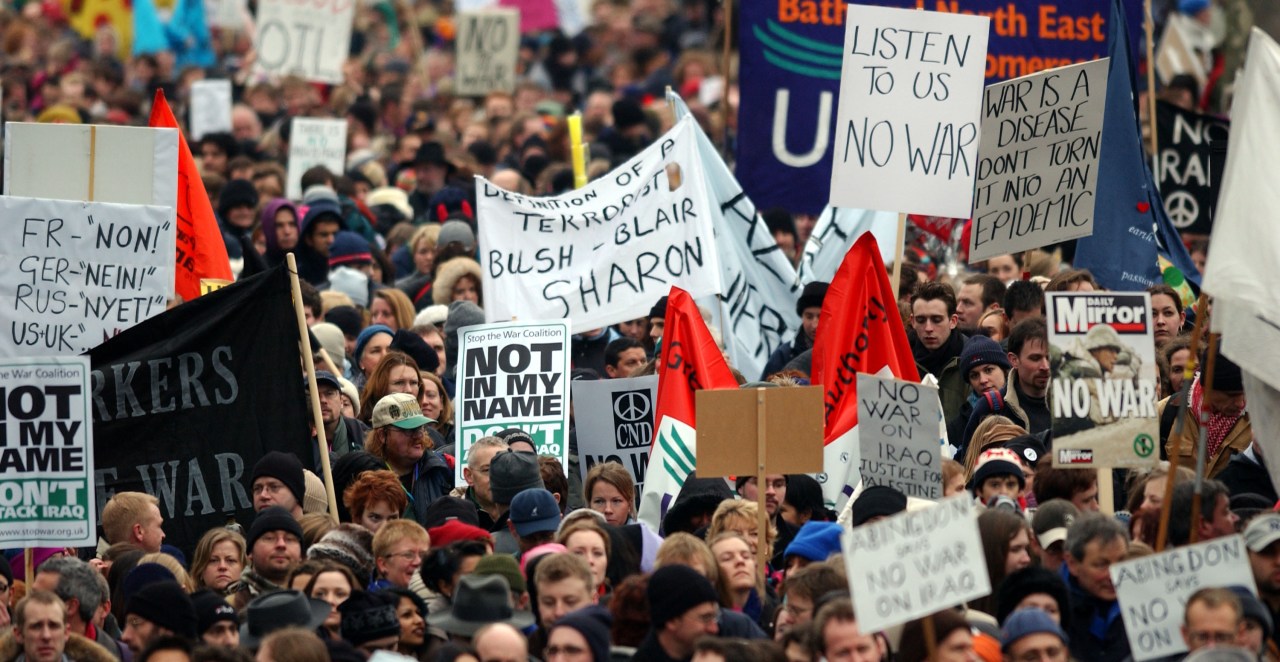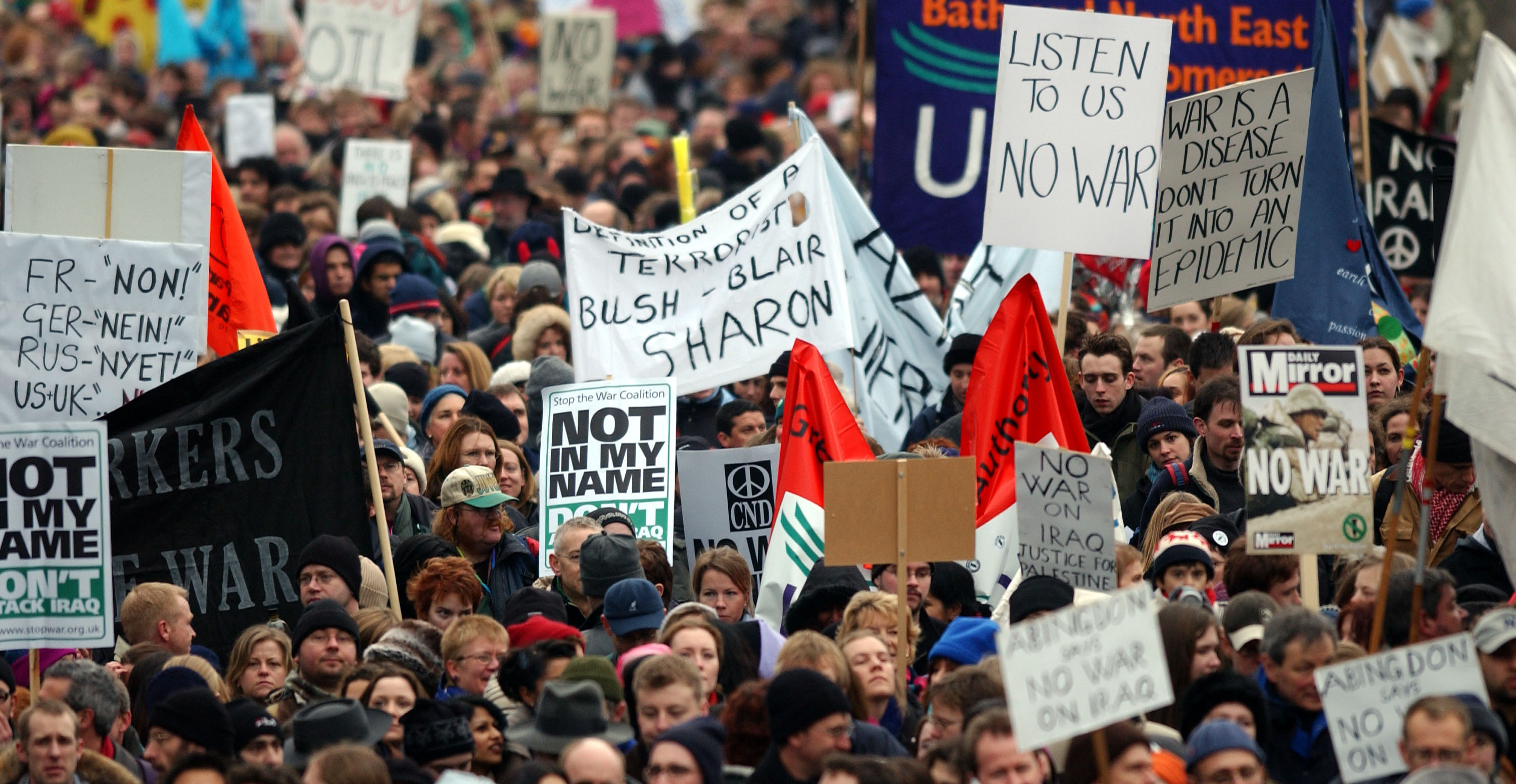Don’t take my word for it. Ask the redoubtable Ms Penny herself. Contemplating the “lesson” of the anti-war protests a decade ago, she writes:
Tony Blair’s decision to take Britain into the Americans’ war in Iraq was an immediate, material calamity for millions of people in the Middle East. I’m writing here, though, about the effect of that decision on the generation in the west who were children then and are adults now. For us, the sense of betrayal was life-changing. We had thought that millions of people making their voices heard would be enough and we were wrong.
Poor lambs. Of course there were millions of people around the world – including many in Britain – who would have been disappointed if Saddam Hussein had been permitted to remain in power. Some of them might even have thought this an act of unpardonable betrayal. It is impossible, however, to think they would have whined about it in quite this ghastly fashion.
It gets worse.
What changed in 2003 was that millions of ordinary citizens around the world finally understood that the game was rigged, because only a few weeks after that march Nato went to war anyway. The people had withdrawn their consent, loudly and peacefully and in numbers too big to ignore, and they had been rebuffed with hardly a second thought. Representative democracy had failed to represent.
The pity of it all. What Ms Penny means is that an insufficient number of British parliamentarians agreed with her and her comrades. Which, eagle-eyed logicians will have already noted, is not quite the same thing as the failure of representative democracy. Sometimes folk will disagree with you. It’s not a betrayal, it’s politics. Get over it. And yourself.
Of course, the country was divided on the wisdom of George W Bush’s mesopotamian adventure. But it is simply a lie to suggest that the British people were unanimously or even overwhelmingly opposed to the war back before it had begun. The people had not “withdrawn their consent” (that came later and, in Britain as in the United States, helped bring the troops home). The people were of two minds.
And so was parliament. Nevertheless – and for whatever reasons they preferred – a clear majority of MPs favoured military action in Iraq. That, frankly, gave the war all the legitimacy it needed (and possibly more than it required). Got a problem with that? Win an election.
Nor – and really this should not have to be pointed out – can you measure the righteousness of a cause by the number of folk it can put on the streets of London or any other city. There is no Million Man March threshold which if met requires parliament to roll over and accede to the protestors’ demands. Nor, of course, should there be.
The narcissistic left may prefer the rule of the mob but, on the whole and albeit with occasional misgivings, I’d rather entrust these matters to parliament.
But, no, the decision to invade Iraq has ruined life for an entire generation of solipsistic Britons. Or something like that. Over to you, Ms Penny:
My generation’s lack of faith in the political process has often been mistaken for apathy. It is only now, with ordinary people across the world putting their energies into movements that bypass mainstream politics, that the betrayal of Bush and Blair’s wars is beginning to be understood. We have known since we were at school that it’s not enough simply to make our voices heard. We have to make sure that we are listened to – and we’re still working out how to do that.
Heaven help us all and may the lord preserve us from these fatheads, narcissists and nincompoops.








Comments